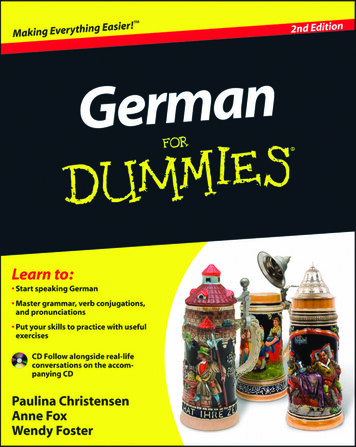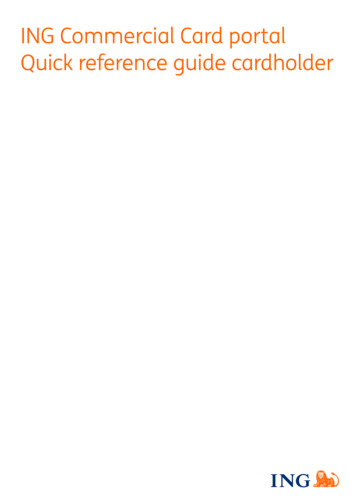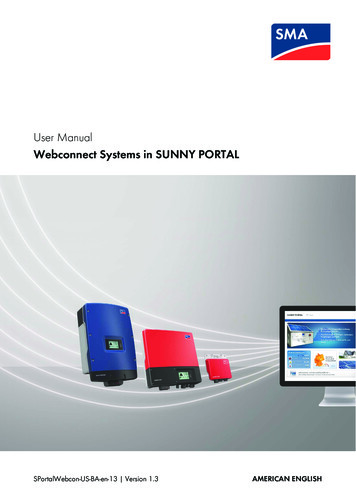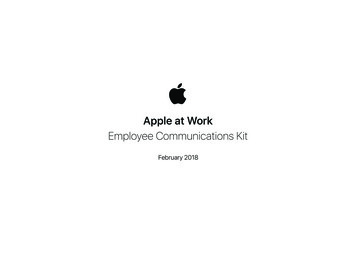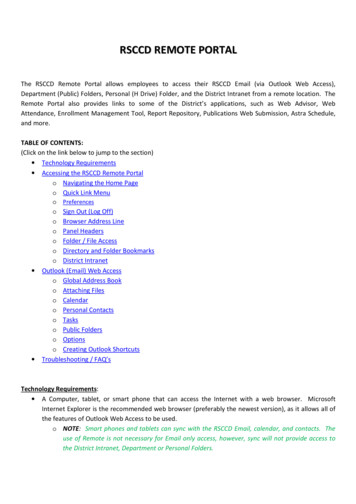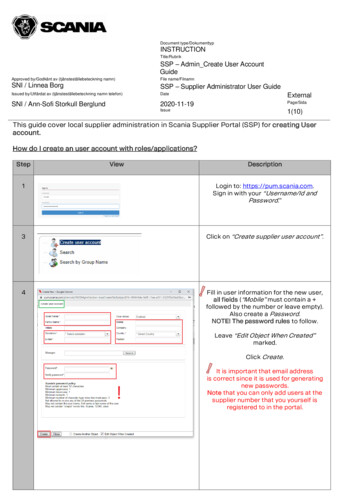
Transcription
Topics List copyrightBerlitzJapan, copyright20212021BerlitzJapan,Inc. Inc.0
List of CoursesMaterialPageEnglish 52627-282930-3132-333435English 2English 3English 4Business English 1Business English 2Business English 3Business English 4Free Choice TopicsBerlitz English Level 1Berlitz English Level 2Berlitz English Level 3Berlitz English Level 4Berlitz Business Basics 2nd EditionBerlitz Business Basics 1st EditionBerlitz Business Situations 2nd EditionBerlitz Business Situations 1st EditionBerlitz Business FrontiersBerlitz Business ConnectionsBerlitz Business Level 3Berlitz Business Level 4 copyright 2021 Berlitz Japan, Inc. 1
[English 1]UnitTopicsTarget Language1Introduce yourselfI am / I’m (not) You are / You’re (not) ; Are you ?; Am I ?; Yes / No This is ; Is this ?; What (country / city) is this?2Give your nameMy name is ; What’s your name?; It’s (Mark).; What letter is it / this?; Is that ? How do you spell ?; How do you spell that?3Give your phone numberWhat number is it / this? What’s your (office) number? My phone number is 4Give your addressWhat’s your (email) address?5Introduce othersThis is (introducing others) What country is from? He / She is No, (he’s) not. / No, (he) isn’t. We / You (pl.) / They are No, (they’re) not. / No, (they) aren’t. his / her / its /our / your6Describe peopleWhat color is it / this? What color are (your) eyes? What color is (your) hair? have / has Do I / you / we / they have ? Yes, (I) do. No, (I) don’t. Does he / she have ? Yes, (she)does. No, (she) doesn’t.7Ask for and give personal detailsto be age How old ? Regular plurals with -s, -ies Irregular plurals. For example: men, women, children, wives, people. These are These ( ) are Are these ? What do /does look like?8Offer something to eat and drinkWould (you) like ? What would (you) like? (I’d) like How would (you) like (your) ? a, an, some (She) would like (She)’d like What kind of (fruit) would (you) like? (not)have any (I / We) don’t have any Do you have any ?9Talk about food preferencesWhat would you like for (lunch)? Plurals with -es (cups / bottles) of How many would you like?11Ask about the menuWhat is the ? What does (it / the chicken) come with? What kind of (soup) do you have? I’d like the ( menu item) Would you like a / the ? Which (dessert) do yourecommend?12Describe your officePrepositions of place. For example: on, under, next to. Where is / are the ? here, there over here, over there this, that these, those13Describe placesThere is Is there ? Yes, there is. No, there isn’t. There are Are there ? Yes, there are No, there aren’t How many are there? There’s only one There aren’t any 14Say what people are doingPresent progressive: to be (verb) -ing am / are / is (sitting / standing) What am / are / is doing?Who’s (verb) -ing ? What are / is (verb) -ing?15Tell the timeTime expressions. For example: half past , quarter to , ten after, five past, ten past. It’s (one) o’clock. in the (morning / afternoon / evening) at night a.m. / p.m. Indirectquestions. For example: Could you tell me the time?, Do you have the time?16Say what you do every dayat time Simple present with have / has (breakfast), get(s) up, go / goes home, eat(s), drink(s), listen(s) (to), read(s), write(s), etc. during (the day) on day(s) every day on (atUK) weekdays / weekends On what days ? What do (you) do ? What does (he) do ?17Describe your jobWhat (does / do) do? Where (does / do) work? What company (do / does) work for? to work in (a school / an office) Who do you work for? Who works (for / at / in) ? (I /You / We / They) do. (He / She) does. What language ?18Say what you do every weekin month on date (I / You / He / She) simple present work(s) from to hours a (day / week) How many hours (a day / a week) ?19Talk about schedulesFrequency adverbs. For example: always, usually, sometimes, rarely, never. (Do / Does) ever ? Present progressive with future meaning. For example: We’re taking a breakat 5:10. copyright 2021 Berlitz Japan, Inc. 2
[English 1]UnitTopicsTarget Language21Arrange to meet someoneObject pronouns: me, you, him, her, it, us, them. Modal can22Make appointmentsto have an appointment (on / at / with) to make an appointment (on / at / with) 23Ask and say where places arePrepositions of place Indefinite pronoun one24Ask for and give directionsImperatives. For example: Turn right. Don’t turn left. Adverbs of sequence. For example: first, (and) then, again, after that.25Say where you are going and howto go on to go by to get around train plane bicycle bike to go by (train) to go on foot26Ask for and give directions for taking publictransportationPrepositions of motion. For example: into, out of, off, on. Imperatives (review) to get on to get off the same to get in(to) to get out (of) different the number (bus) Take the (bus). Go stops.27Ask for items in a storemany vs. much Quantifiers. For example: a lot, a few, a little, not any;gift shop; shop (n., v.) to sell; to shop for sales; clerk (shop assistant) T-shirt sweatshirt; clothes; perfume;gift28Talk about pricesHow much is ? How much are ? the one(s) Which one(s)? price; price tag Numbers 101–1,000,000 wallet; money dollars, cents pounds, pence euros, cents; handbag; shoes;socks; gloves; a pair of 29Talk about sizes and make a purchasenot (big) enough vs. (big) enough vs. too (big) size; size tag to wear (a) size S-M-L-XL regular; What size wear?31Compare items and make a purchaseComparatives with -er . than and more / less . than. suit formal wear casual wear comfortable better (than) bad worse (than) Do you take credit cards? Which credit cards doyou take? major credit cards to take all the major credit cards32Make a phone callInfinitive of purpose: to verb; I want (to) ( would like); I need to ( have to) Telephone expressions; to ring; to pick up; to dial; to hang up What (do / does) do when ? toanswer; (May / Can) I speak to ? on the line; on another line33Leave and take a messageto (ask / tell) (not) to Polite requests with Could ? to leave a message; out of the office; (can’t) take the call to ask; to take a message; to call back; to give a message34Give someone a messageSimple past tense (irregular) with to be. Yes, I was. No, you weren't. Simple past tense (irregular) with to do. Yes, I did. No, you didn't. Simple past tense (regular verbs) with -ed. Imissed your call yesterday.35Return a callSimple past tense (regular verbs) with -ed (cont.) Telephone expressions;I’m sorry I missed your call. I’m returning your call. Thanks for returning my call. Thanks for calling meback.36Describe the weatherWhat’s the weather like? It’s (sunny). The temperature is sunny, rainy, snowy, weather, cloudy, windy, to rain, raining, to snow, snowing, hot, cold, warm, cool, degrees ( C / F)What’s the temperature?37Say what you like to doTime expressions. For example: in season. too, not either; Vocabulary & Expressions;spring summer fall / autumn winter to play (tennis / soccer (football UK) / golf) sport tolike to What do you like to do? in the (rain / snow) to golf to ski to swim to run to go (skiing / (ice) skating / snowboarding) to go (running / swimming / sailing) too ( also)38Make plans to go outto go to to go for to go -ing;to go out to make plans in the (mountains / ocean / country(side)) to go for a (drive / walk / bike ride / picnic) I’d love to! I’m sorry. I can’t.That’s too bad. to stay home; to go out; to ea;t to go to (the movies / a concert / a play; to go dancing instead39Describe plansTime expressions. in (number) hour(s); for (number) day(s). Indefinite pronouns. anything, something, nothing, everything. Nothing is open. Everything is closed. There’snothing to do. Beach, ski resort, amusement park, to go away for the weekend copyright 2021 Berlitz Japan, Inc. 3
[English 2]UnitTopicsTarget Language1Describe travel plansflight to travel; Present progressive vs. present progressive with future meaning; Simple present vs. present progressive2Ask about schedulesFrequency with ordinal and cardinal numbers: once, twice, three times (a day), every (ten minutes). Time expressions (review): half past , quarter after , etc. Simple present with schedules.For example: The train to Boston runs every two hours:; to leave from (track 2) to depart (for) to arrive3Ask about fares and buy ticketsHow long does it take ? For example: How long does it take to get to Cardiff? It takes about two hours. one-way (single UK) round-trip (return UK) fare seat class first class business class4Give travel updatesSimple future with will. For example: We won’t be on time. We’ll arrive an hour late. scheduled (time) on time late early airline cancellation delay (n., v.) delayed to land update (n.) (to take a)direct flight to board connecting flight to miss a connection5Talk about a business tripSimple past (irregular verbs for business travel). For example: I went to Paris and met with a client. on business gate (Flight 231) is now boarding. (to make) an announcement went met madegave took left bought suitcase to put (in / on) to pack6Introduce your company and describe its productsand servicesOrder of adjectives; Inclusive with. For example: a company with branches in 50 countries. employee over ( more than) a company with over multinational world all over the (world)medium-sized branch (office) headquarters to make ( to manufacture) clothing (company) product to manufacture manufacturer to provide services service provider to export (to) exporterto import (from) importer.7Describe your company’s organizationRelative clauses (subject form) with who and that; organization; organization chart department accounting human resources (HR) IT marketing customer service research and development(R&D) production legal president (managing director UK) vice president (VP)8Describe your colleagues’ responsibilitiesExpress responsibility using to be responsible for and to be in charge of; to get a job got the job That’s impressive! to update computer network to set up responsibility to be responsible for(something / doing something) What are you responsible for? to check to be in charge of to make sure to create9Talk about your job and your responsibilitiesSimple past: more irregular verbs; ago How long ago ? flew sat ate drove read saw sold wrote sent began came (back) paid cost told knew11Describe vacation plansFuture with to be going to; to fly (out of / from) to fly (into / to) to fly with airline; What airport (do you) fly (out of / into)? to take (a bag) with; to pick (me) up camera to go on a tour;guide; to forget (to); remember (to) remembered (to) passport to remind (you) to 12Describe favorite vacation activitiesExpress amounts with too much, too many, enough, not enough; to sunbathe suntan sunscreen; to put on sunscreen sunburn sunburned (sunburnt UK) swimsuit (swimming costume UK)umbrella coat scarf hat boots hike (v., n.) to go hiking to go on a hike13Give travel adviceGive advice with should and in case. Express probability with may; driver’s license; That sounds like fun. maybe Just in case.14Ask for information about hotel and make areservationinformation to make a reservation; single room double room balcony bathroom bed king-size bed minibar all ( every) Internet access WiFi; swimming pool; (airport) shuttle bus fitnesscenter business center amenities close to both convenient to be located location per (night) rate (vs. price) What are your rates? Suite; motel bed and breakfast (B&B) to reserve (a room) forone person for (two) people for (three) nights15Check into a hotel and speak to hotel staffPolite offers with shall. For example: Shall I (take your bags to your room)? Using object pronouns with direct objects. For example: bring me (an extra towel); to check in to check out I havea reservation. check-out time16Describe your stay and check outSuperlative forms: adj. -est; the most / the least adj. For example: Goldcrest Hotel is the biggest and the most expensive hotel in Springfield. cheapest biggest smallest the most expensivethe least convenient the best the worst17Reserve a tableto feel like -ing; fast food takeout (takeaway UK) to serve pasta fish crab shrimp seafood meat vegetarian place ( restaurant) to book ( reserve) a table for (four)18Compare restaurantsMake comparisons using as as: (not) as (good) as, (not) as many (customers) as, (not) as much (food) as. friendly unfriendly crowded fast slow noisy quiet the same(menu) as excellent terrific terrible awful all right so-so (adj.)19Describe food and preferencesto prefer noun like vs. would like; to like (Greek food) more than (Italian) to prefer (seafood) to (steak) to cook cooked raw to boil boiled to fry fried (frying) pan to steamsteamed oven to roast roasted to bake baked How do you cook ? hungry thirsty rare medium well done How do you like your (steak)? copyright 2021 Berlitz Japan, Inc. 4
[English 2]UnitTopicsTarget Language21Describe a meala little too much too ; (chili) pepper potato chips (crisps UK) sweet sour bitter hot ( spicy) spicy salty How does taste? What else ? too (sour) for me (to eat) dish ( food)22Say how you’re feelingUsing to have to express obligation. He had to stay home; arm hand leg foot feet neck finger shoulder My hurt(s). to hurt ( injure) to cut to hit to fall What’s the matter? Back head ear stomach tofeel felt don’t / doesn’t feel well What’s wrong (with him)? to have a headache toothache earache backache stomachache I’m glad to hear that. I’m sorry to hear that. I hope you feel better soon.2324Describe what happenedto tell / ask someone what happened to describe (to feel) fine sick; Past progressive: was / were -ingDescribe your symptoms and ask about medicinesGet well soon. to get some rest runny nose to sneeze throat sore throat cough (n., v.) a cold the flu symptom (usu. pl.) fever tired (to take) medicine Bless you! to call in sick pill to take (pills) for (acold) (cough) syrup prescription (adj., n.); don’t have to shouldn’t vs. don’t have to to get adjective: to get sick / well, to get better / worse, to get cold / hot, to get cooler / warmer,25Talk about your favorite books and musicfree time; author; by ( author) story stories What do you enjoy reading the most / the least? guitar violin piano instrument musician to play music to play an instrument to play the (guitar) to singsinger song band orchestra composer guitarist violinist pianist to spend time with to spend time doing something; Using to enjoy -ing form. Using to like / love / hate -ing form. Using to like / love/ hate infinitive. I like to sing.26to invite channel program guide the news documentary on channel on at time What (time / channel) is it on? What’s on at ? When’s on? actor to play (character’s name) to play ( to show)Talk about TV shows and movies and invite someoneWhat’s / Who’s playing (at the )? Do you have plans for (Saturday night)? Sure! I have other plans. Maybe some other time.; would rather than I’d rather than rather not Would you like tooutgo to (a vs. the vs. no article) (concert)?27Talk about your hobbiesgame to draw hobby popular to collect collection collector antique (n.) to start to stop still not anymore beautiful serious quickly slowly badly beautifully to take (something) seriously; Using to start /stop -ing form. For example: to start playing video games; to stop collecting stamps. Using still / not anymore. For example: I don’t dance anymore. Using -ly adverbs of manner. For example: Annsings beautifully. Irregular adverb of manner: well28293132333435Describe exercise habitsFrequency adverbs: regularly, occasionally, etc. Habitual conditional with if. For example: Paul eats something if he’s hungry. If Paul is hungry, he eats something.; exercise (n., v.) gym to do aerobicsto lift weights outdoors indoors regularly often occasionally hardly ever if / if notGive exercise adviceexercise (n., v.) gym to do aerobics to lift weights outdoors indoors regularly often occasionally hardly ever if / if not; That sounds like fun. vs. That sounds exciting. If you want to , you have to Ask for and respond to requests for informationad (advert UK) to offer fee monthly fee to work ( operate, run) equipment I don’t know what the fees are. member membership (fee) to join; Ask for information using Do you know / Can you tellme (if / question word). Can you tell me where the restrooms are? Respond to requests for information with I don’t know (if / question word).Talk about movingapartment house place ( home) kitchen bedroom living room dining room dining area study through closet (wardrobe / cupboard UK) to own rent (n., v.) to move (into) to guess Guess what? Whereto?; to move to move intoDescribe your homeWhat’s your place like? ( tell me about your place) story; garage two-story house ;two-car garage light (n.) dark ( not bright / without light); Number-noun adjectives: a two-story building, a two-cargarage, etc. Negative tag questions. For example: You have a three-bedroom house, don’t you? Your house is on Elm Street, isn’t it?Describe your neighborhoodNeighborhood; downtown suburbs neighbor; traffic advantage disadvantage; myself yourself himself herself itself to build to decorate to take a picture yourselves ourselves themselves; Reflexivepronouns (emphatic use). For example: I built it myself.Welcome visitorsvisitor (to give a) compliment What a beautiful house you have! pretty nice fantastic wonderful vase Welcome to (our home). Make yourself at home. I’m glad you could join us. (Please) Have a seat.Make yourself comfortable. Would you care for (some coffee)? stairs upstairs downstairs to show (them) around; What a adjective noun! What a (beautiful picture)!36Say what you use something forExpress purpose with to use (a device) infinitive. For example: I use my smartphone to take pictures. Express purpose with to use (a device) for -ing. For example: I use my smartphone fortaking pictures. to explain refrigerator (inf. fridge) stove microwave oven toaster dishes dishwasher appliance washing machine dryer to heat to keep cold to toast What do you use (it) for? device adevice for (calling people) remote control tablet (PC) on off to turn on to turn off37Describe what people used to dorecord; record player cassette player CD player MP3 player MP3 file to download (files) present ( not past or future) past used to Did (you) use to (listen to records)? (They) didn’t use to (sendemails). typewriter videocassette nowadays in the old days useless useful obsolete old-fashioned scanner; Express past habits with used to verb. For example: I used to listen to cassettes.3839Talk about past eventsteenager childhood the (90s) in (the 90s) to grow up fad trend trendy fashionable to happen What happened in (1976)? What happened on (July 9th)? event past event current event memory tobring back memories; Time expressions: the (90s), in (the 90s) to remember -ing: Do you remember spending time with your grandfather?Compare modern and past timesgeneration modern when (was / were) little life ( way of living) complicated somewhat life ( the time period during which a person lives); copyright 2021 Berlitz Japan, Inc. 5
[English 3]UnitTopicsTarget Language1Ask and answer questions about personal experienceAcquaintance; Nice to see you again. How have you been? How’ve you been? Have / has before Yes, has / have. No, hasn’t / haven’t. Have we met before? No, has never /have never been (here) come (past participle) seen taken given; Present perfect with before. For example: I haven’t met Mike before. Present perfect with ever / never. Have youever lived in a big city? She has never worked in a small company.2Ask a friend about a busy monthspoken written had has / had (had) done gotten; gone to get married; to get married to (someone) lately in (two days) What have you been up to? to promote promotion; to receivea promotion; course; Present perfect with since / for / in; Kay hasn’t seen her friend in six years.3Share and respond to good and bad newsreunion news good news bad news Congratulations! That’s terrible. I’m delighted to hear that! How awful! I understand. to lose a job to graduate from; Present perfect with timeexpressions: in the last week / in the last month / in the last year.4Ask and answer questions about educational andprofessional historyto work as (an accountant) interview (n., v.) experience education résumé (CV UK) current (job) currently position ( job) to work in the (technology) field degree to have a degree in(English) from (university); Time expressions in simple past vs. present perfect: just, from to, until, for, since5Give updates on an event planyet already caterer catering company florist reply (n., v.) so far How is (something) coming along? Present perfect with so far, already, (not) yet, still. For example: I’ve already donethat. I haven’t called the office yet. Contrast: present perfect vs. simple past6Plan an itinerary for a guest’s visitvisit (n.) celebration to celebrate anniversary wedding anniversary; anniversary with the company; to plan to prepare list guest list host (n.) to organize itinerary agenda; someone /anyone / everyone / no one7Plan a partyto decide decorations to pick up to drop off to put up to take down to fill out (fill in UK) to give back to look over to talk over to write down; Two-word phrasal verbs (separable): tofill out, to look over, etc.8Suggest interesting places to go in your citysight to go sightseeing tourist attraction famous statue national park must-see to suggest suggestion at least ( a minimum of) cuisine local cuisine to depend That depends. Thatsounds good. That sounds like a good idea. Make suggestions using to suggest -ing. For example: I suggest calling Eva in the morning. Review of present perfect with ever / never.For example: Have you ever been to Paris?9Give details about sightseeing spotsto discover built to design to paint painting century the century; Passive voice (present tense). For example: Vacations are taken in August and December. Passive by phrase. Forexample: Parks are visited by millions of people each year. Passive voice (past tense). For example: The Taj Mahal was completed around 1653. Sunflowers was painted by Vincentvan Gogh.11Ask for advice about vacation activitieswhitewater rafting parasailing to relax relaxing exhausting to take it easy active dangerous safe to go camping tent festival brochure one-day pass; Gerunds as subjects. For example:Taking a trip can be interesting. one of the superlative plural12Describe a great trippeak season off-season discount last minute last-minute deal to find a last-minute deal weekend getaway (weekend break UK) package tour; somewhere, anywhere, everywhere,nowhere ever for emphasis13Ask about menu items and recommend internationalcuisinePast passive / present passive. eaten What is it served with? Specialty; to originate meringue crust whipped cream kiwi scone okra I think I’ll have (the) (fish). so (conj.) somethinglight How is (chicken) prepared? grilled sautéed poached breaded stuffed fresh an order of (fries); to hold (the onions) on the side to make a special request Could I have (rice)instead? Could I have (roast beef) as (an appetizer)? recommendation14Complain about a mealsatisfied dissatisfied to charge to rate over- / understaffed over- / underrated over- / undercharged over- / underpriced over- / undercooked over- / undercooked superb to smell Itdoesn’t smell right. It smells (bad). Not really. Give my compliments to the chef. to send (food / order) back on the house;15Comment on a mealfull ( not hungry) tip (n., v.) to give a tip to leave a tip helpful check (bill UK) separate checks together ( not separate) Let me (pay). Let me get this. to take care of (the bill) ( pay)Would you care for anything else? Just the check, please. Will that be all? This one’s on me. so adjective that16Check in for a flightto check in for a flight to check bags (check in bags UK) baggage carry-on bag purse to choose window (seat) middle seat aisle seat boarding pass What will (you) be doing? shortly toproceed to; Future progressive17Make and confirm requests on a planepilot captain co-pilot flight attendant on board Welcome aboard! to take off take-off landing seat belt to fasten exit (on a plane) overhead; overhead bin; to store to keep (the aisle)clear to remain tray table upright (position) in-flight entertainment system18Call baggage claim and locate a missing bagbaggage claim (airport) terminal carousel baggage carousel baggage claim check to deliver to mishandle the mishandling (of something) inconvenience;Possessive pronouns: mine, hers, etc.19Describe your flight experienceinternational terminal arrivals hall (UK) security immigration (passport control UK) customs to go through (customs) (customs) officer to declare Do you have anything to declare?What’s the purpose of your visit? (for) pleasure in your possession at all times; Reported speech; The agent asked if / said that , etc. copyright 2021 Berlitz Japan, Inc. 6
[English 3]UnitTopicsTarget Language21Plan which errands to run and make a shopping listerrands to run; errands; to get a haircut; hair stylist groceries; grocery store; supermarket; prescriptions; to run out (of milk); to run low (on potatoes) drug store frozen (foods) aisle (three)to fix to get in touch with to stop by to stop by the store (for cheese) / to buy (fish) to be able to22Explain what you have people do for youto do chores trash; to take out the trash to iron to vacuum; to do the ironing, the laundry; the vacuuming to do the cleaning to do the cooking painter taxes to do (one’s) taxes; Causative(active form): to have someone (do) something. For example: I have the mechanic repair the car.23Talk about your chores and errandsto have (something done) to get (something done); Causatives (passive form). For example: I had / got my hair cut yesterday. Causatives (passive form). For example: I had / got my hair cutyesterday.24Rent a carrental car rental agency mile / kilometer; car classes: compact (small family car UK), full-size, luxury, SUV model vehicle gasoline / gas (petrol UK) diesel gallon / liter (litre UK) several gastank full / empty (gas) tank extra extra charge mileage unlimited mileage insurance; Verb more / less. For example: The SUV costs more than the full-size car.25Ask for and summarize road directionsroad sidewalk (pavement UK) intersection (crossroads UK) sign stop sign to make a (left) (US) to turn to turn onto around highway (motorway UK) highway names east west north southto go (south) exit to take exit lane to stay in the (right) lane to follow to follow the signs to Reported commands / instructions.26Talk about road and traffic conditionstruck (lorry UK) traffic report pouring had better wet icy to slow down slippery to slip fog foggy It’s (dangerous) to infinitive careful careful driver carefully to drive carefully to text legal /illegal to pull over traffic ticket traffic ticket for (speeding) speeding careless driving accident to block blocked because of rush hour to hit (rush hour traffic) heavy (traffic) light (traffic)traffic jam to be stuck in traffic construction road construction (roadworks UK) to avoid detour (sign) authorities; while -ing. For example: Don’t text while driving.2728Report car troubleto start car won’t start tire (tyre UK) to have a flat (tire) (have a puncture UK) to lock to lock keys inside a car roadside assistance tow truck to towGive your opinion about recent performancesstadium concert hall venue ballet opera musical (n.) exhibit (exhibition UK) dancer performer show amazing recently; recently vs. lately to expect expected worse than expected betterthan expected Don’t bother (seeing it). Present perfect with lately, recently29Give your opinion about a moviereview(s) movie review(s) title What is (the movie) about? It’s the story of (a king). movie genres drama horror science fiction genre actress star movie star character main character plot tolaugh to make (one) laugh funny It was so (funny) that I couldn’t (stop laughing)! to cry sad really sad pretty sad scary disappointing confusing surprising confused disappointed surprisedamazed; Adjectives ending in -ing and -ed3132Tell a friend what a movie is aboutto take place to take place in the (future) When / Where does (the story) take place? based on a true story realistic unrealistic ending happy ending predictable unpredictable What did thereviews say? It’s supposed to be (good). to be set in (New York) (New York) is the setting; to be supposed to beBuy tickets to a showperformance matinee sold out box office seating chart stage (in the) front front row (in the) back ( not front) (in the) center (on the) side(s)33Explain the steps in planning a projectto work on a project proposal to present to approve to reject to submit to put together to spend spent daily weekly yearly purchase (n., v.) expenses budget (expenses are) too high(budget is) too low to be / go over budget to be under budget to be within budget by; Present perfect with just. For example: We’ve just submitted our proposal.34Talk about schedules and deadlinesto be allowed to not allowed to to complete deadline to meet the deadline to miss the deadline ahead of schedule on schedule right on schedule behind schedule How far (behind)schedule (are we)? I (don’t) think so. Everything is going according to plan. Status; status report due soon as soon as urgent The sooner the better. ASAP; Modals: must, mustn’t, don’t haveto, can’t, not allowed to by date or time.3536Give a status update on a projectEverything is coming along fine. to take time to save time to run out of time to get back on track Keep up the good work. as planne
English 4 8-9 Business English 1 10-11 Business English 2 12-13 Business English 3 14-15 Business English 4 16-17 Free Choice Topics 18-19 Berlitz English Level 1 20 Berlitz English Level 2 21 Berlitz English Level 3 22 Berlitz English Level 4 23 Berlitz Business Basics 2nd Edition 24-25 Be
